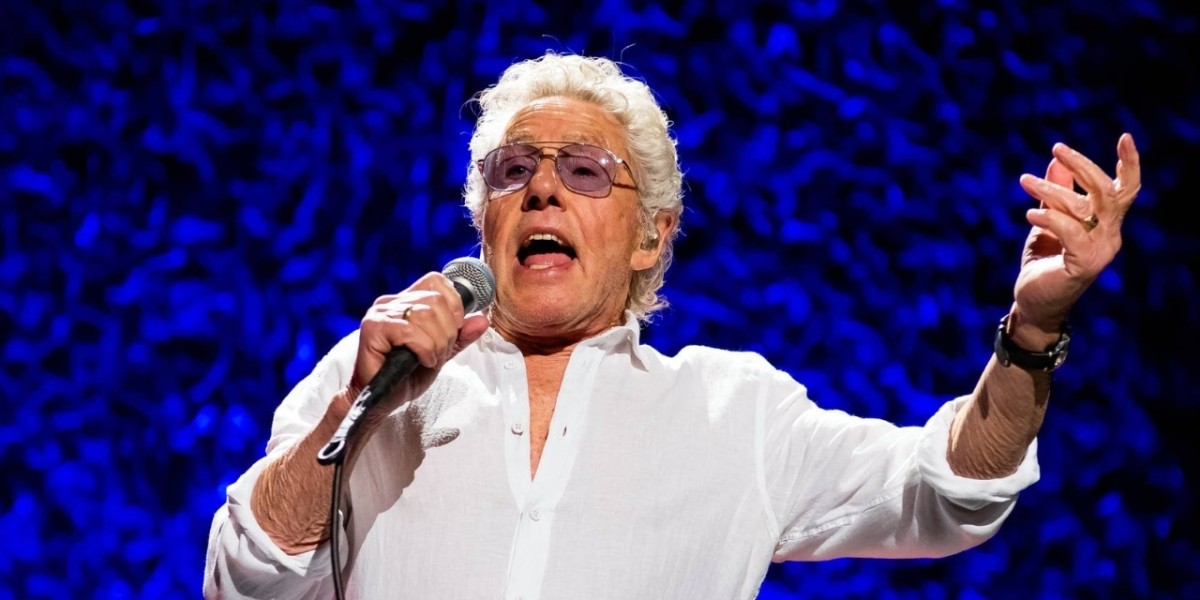Roger Daltrey is a name synonymous with raw power, passion, and an indelible legacy in rock music. As the co-founder and lead vocalist of legendary rock band The Who, Roger Daltrey's influence has transcended generations, captivating American audiences with his commanding voice and magnetic stage presence. This blog explores the multifaceted journey of Roger Daltrey—his musical prowess, his lasting impact on rock's evolution, and his enduring role as a cultural icon.
The Rise of Roger Daltrey: From West London to Rock Stardom
Born in Shepherd’s Bush, West London, in 1944, Roger Daltrey arly musical ventures began during his school days where he formed a skiffle band, The Detours, that would evolve into The Who. The band solidified its lineup by 1965 with Daltrey as the vocal powerhouse, joined by Pete Townshend, John Entwistle, and Keith Moon. Known for their loud, electrifying performances and pioneering "auto-destructive art" on stage, The Who quickly distinguished themselves from their contemporaries.
Daltrey’s dynamic presence and unbridled vocal strength became the driving force behind The Who’s success. Hit anthems such as “My Generation,” “Pinball Wizard,” and “Won’t Get Fooled Again” showcased not only the band's innovative songwriting but also Daltrey’s ability to embody the rebellious spirit of rock. His stage persona was raw and unpolished yet magnetic, earning him the status as one of “the gods of rock and roll.”
Roger Daltrey’s Musical Legacy: Innovation and Influence
Roger Daltrey’s contributions go beyond his vocal talents. His interpretive skills brought Pete Townshend’s complex compositions to life, setting a new standard for rock vocalists. According to music historians, Daltrey’s influence is visible in the way heavy rock developed in the 1970s, bridging raw blues traditions with the burgeoning hard rock and heavy metal scenes. Remarkably, iconic musicians such as Robert Plant have admitted to drawing inspiration from Daltrey’s stage presence and vocal style.
As an artist, Daltrey was not merely content with band fame. His solo career, initiated in 1973, allowed him to explore a more varied musical palette ranging from rock to pop, further emphasizing his versatility. Albums like Ride a Rock Horse and One of the Boys offered a different but complementary perspective to his work with The Who. Despite some health challenges including vocal cord surgery in 2010, Daltrey’s voice has remarkably retained its power and expressiveness, underscoring his longevity.
The Humanitarian Side of Roger Daltrey
Beyond the stage, Roger Daltrey has been profoundly dedicated to philanthropy, notably through co-founding the Teenage Cancer Trust in the UK. This commitment to supporting young cancer patients reveals the depth of his character beyond music. His charitable work garnered him a CBE in 2004 and later a Knighthood from King Charles in 2025, acknowledging both his artistic and humanitarian achievements.
Roger Daltrey’s humility and willingness to use his platform for good have earned him respect far beyond the rock music sphere. It is this blend of artistic brilliance and social responsibility that cements his role not only as a musician but as a role model.
Expert Perspective on Roger Daltrey’s Impact
Music critic and scholar Dr. James R. Green notes, “Roger Daltrey’s vocal delivery brought an emotional intensity and theatricality that reshaped rock music’s possibilities. His blend of authority and vulnerability created an expressive depth that influenced countless singers and broadened the scope of rock’s narrative power”.
Such expert insight aligns with the wider academic analysis of Daltrey’s legacy as a figure who helped elevate rock music from mere entertainment to a vehicle of cultural storytelling and artistic innovation.
Roger Daltrey’s Enduring Connection with American Audiences
Roger Daltrey and The Who’s influence on American rock culture is profound. They became staples in major U.S. music festivals, including Woodstock and the Monterey Pop Festival, cementing their place in the American rock pantheon. Their ability to connect with American audiences lies not only in their high-energy performances but also their engagement with themes of youth, rebellion, and social change—universal concepts that resonated deeply with the American spirit in the 1960s and beyond.
Moreover, Daltrey’s continued tours and performances in the U.S., alongside his advocacy for music industry workers, demonstrate his ongoing commitment to this audience. Even at 81, his enthusiasm for performing and connection with fans remain undiminished.
The Rich Narrative of Roger Daltrey’s Career
The trajectory of Roger Daltrey’s career mirrors the evolution of rock music itself. From the raw, emotional outbursts of early Who hits through the experimentation with rock operas like Tommy, to his introspective solo projects, his journey is marked by resilience and creativity. He consistently adapted his artistry in response to changing musical landscapes and personal circumstances.
Furthermore, his willingness to embrace acting and production roles shows a breadth that redefines the traditional rock star archetype. His resilience in overcoming personal and health challenges demonstrates his dedication to his craft and his fans.
Conclusion: The Timeless Influence of Roger Daltrey
Roger Daltrey remains an iconic figure whose contributions have defined and expanded the boundaries of rock music. His powerful voice, charismatic stage presence, and willingness to evolve artistically have ensured his place in music history. Moreover, Daltrey’s commitment to philanthropy and his fans exemplifies the character of a true artist beyond fame.
For American audiences, Roger Daltrey is more than just the lead singer of The Who—he is a symbol of the spirit of rock ’n’ roll itself: bold, expressive, and enduring. His legacy continues to inspire upcoming generations, reminding us all of the transformative power of music.



